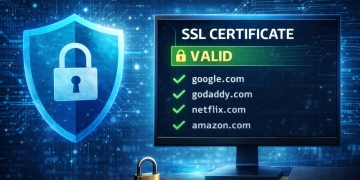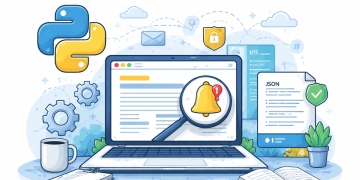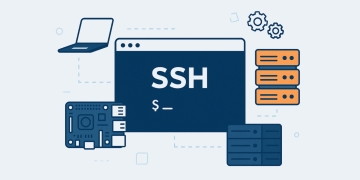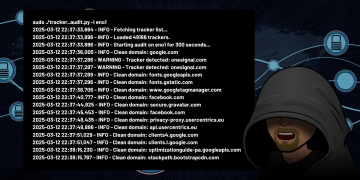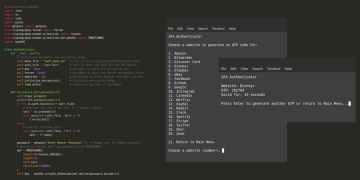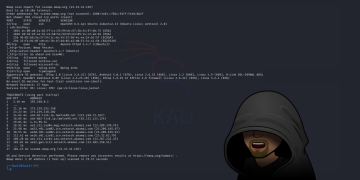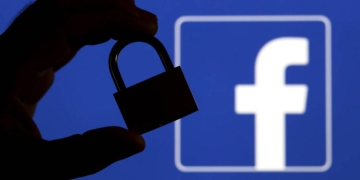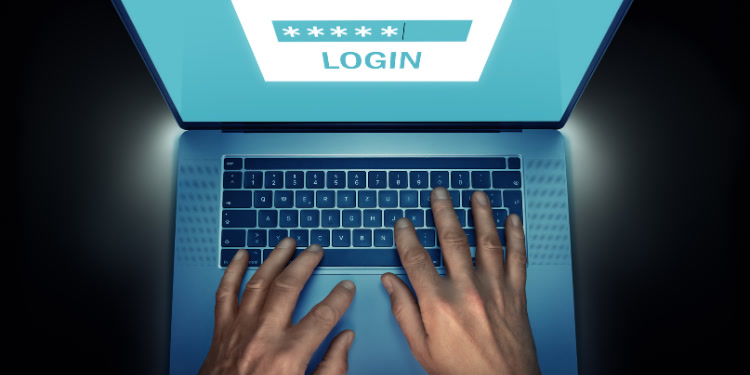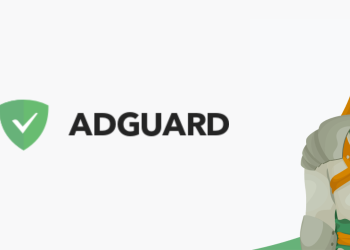In today’s digital world, password security has become an essential aspect of our online lives. Passwords protect our personal and financial data from falling into the wrong hands, but not all passwords are created equal. Weak passwords can be easily hacked, putting our information at risk. In fact, according to recent studies, weak or compromised passwords are responsible for over 80% of data breaches.
The problem is that many people still use simple passwords such as “123456” or “password,” which are the first to be guessed by hackers. Personal information such as birthdays, pet names, and family members’ names should also be avoided, as this information can be easily found on social media or through public records.
The good news is that there are many ways to create and maintain strong passwords. In this article, we’ll explore the factors that determine password strength, tools for creating strong passwords, and best practices for maintaining password security. We’ll also discuss common password mistakes to avoid and the importance of taking password security seriously.
By taking password security seriously, we can protect our sensitive information and prevent cybercrime. Whether it’s for personal or business use, a strong password is essential to online security. Let’s dive in and learn how to create and maintain strong passwords.
Factors that Determine Password Strength
The strength of a password depends on several factors, including length, complexity, and uniqueness. Let’s take a closer look at each of these factors:
Length – The length of a password is a critical factor in determining its strength. A longer password is more difficult to guess or crack, making it more secure. A password that’s eight characters long is the minimum recommended length, but experts recommend using longer passwords for maximum security. A password that’s 12-16 characters long is generally considered strong.
Complexity – Password complexity is another essential factor in password strength. A complex password includes a mix of uppercase and lowercase letters, numbers, and symbols. Passwords that only use letters or numbers are much easier to crack than those that use a combination of characters. For example, a password like “password123” is much weaker than one like “P@ssw0rd!23”. It’s important to avoid using personal information, such as birthdays or names, and to use a variety of characters to create a complex password.
Uniqueness – Using the same password for multiple accounts is a common mistake that can compromise password security. If a hacker gains access to one account, they can use the same password to access others. It’s essential to use a unique password for each account to prevent this from happening. Many people struggle to remember multiple passwords, which is why password managers can be helpful.
Randomness – The randomness of a password can also affect its strength. A password that’s easy to guess, such as a common word or a string of numbers, is much weaker than a password that’s random and unique. Passwords that are generated by computer algorithms are generally considered to be more random than passwords created by humans.
Predictability – Predictable passwords are easy for hackers to guess or crack. Passwords that use common words or phrases, dictionary words, or patterns on a keyboard are all predictable and should be avoided.
When creating a strong password, it’s important to consider all of these factors. A strong password should be at least 12-16 characters long, contain a mix of uppercase and lowercase letters, numbers, and symbols, and not be used for any other accounts. It’s important to avoid using personal information and to change passwords regularly. By considering these factors, you can create a strong password that is much more difficult to hack.
The Importance of Password Length
Password length is one of the most critical factors in determining the strength of a password. A longer password is more difficult to guess or crack than a shorter one, and it can take exponentially longer for a hacker to crack a password that’s just a few characters longer.
When it comes to password length, the general consensus among experts is that a password should be at least 12-16 characters long. While this may seem like a lot, it’s important to remember that a strong password is the first line of defense against cybercriminals.
One reason why password length is so important is that it increases the number of possible combinations that a hacker must guess to crack the password. For example, a password that’s six characters long and uses only lowercase letters has 308,915,776 possible combinations. That may seem like a lot, but with today’s computing power, a hacker can guess all possible combinations in a matter of seconds.
In contrast, a password that’s 12 characters long and uses a mix of uppercase and lowercase letters, numbers, and symbols has 95,428,956,661,682,176 possible combinations. That’s an astronomical number, and it would take a hacker much longer to crack a password of this length.
Another reason why password length is essential is that it makes it more difficult for hackers to use brute-force attacks. A brute force attack is when a hacker uses a computer program to systematically try every possible combination of characters until they find the correct password. The longer the password, the more difficult and time-consuming it is for a brute-force attack to succeed.
It’s also important to note that password length alone is not enough to ensure password security. A strong password should be a combination of length, complexity, and uniqueness. However, password length is an essential component of password security and should not be overlooked.
Password length is crucial in ensuring the security of our personal and financial information online. A longer password is more difficult to guess or crack, and it increases the number of possible combinations that a hacker must try to guess the password. By creating passwords that are 12-16 characters long and using a mix of uppercase and lowercase letters, numbers, and symbols, we can significantly increase our password security and protect ourselves from cybercriminals.
The Role of Password Complexity in Password Strength
Password complexity is another essential factor in password strength. A complex password includes a mix of uppercase and lowercase letters, numbers, and symbols. Passwords that only use letters or numbers are much easier to crack than those that use a combination of characters. For example, a password like “password123” is much weaker than one like “P@ssw0rd!23”. It’s important to avoid using personal information, such as birthdays or names, and to use a variety of characters to create a complex password.
The reason why complexity is so important is that it significantly increases the number of possible combinations that a hacker must try to guess the password. If a password only uses lowercase letters, there are only 26 possible characters for each position. However, if a password uses a mix of uppercase and lowercase letters, numbers, and symbols, the number of possible characters increases dramatically, making the password much more difficult to crack.
One way to create a complex password is to use a passphrase instead of a single word. A passphrase is a sentence or a sequence of words that are easy to remember but difficult for a hacker to guess. For example, instead of using a single word like “password,” you could use a passphrase like “Ilove2travel2Europe!” which includes a mix of uppercase and lowercase letters, numbers, and symbols. Passphrases are generally easier to remember than random strings of characters, and they can be just as secure. We will go over this in more detail further in the article.
It’s also important to note that using common words or phrases, dictionary words, or patterns on a keyboard can make a password predictable and easy to guess. Passwords like “qwerty” or “123456” are commonly used and can be easily guessed by hackers. It’s best to avoid using these types of passwords and opt for a more complex password instead.
Another way to create a complex password is to use a password manager. Password managers are software tools that generate and store complex passwords for you. They can also automatically fill in passwords for you when you visit a website, so you don’t have to remember them. Password managers can be a convenient way to create and manage complex passwords, and they can significantly increase your password security.
Password complexity is a crucial component of password strength. By using a mix of uppercase and lowercase letters, numbers, and symbols, and avoiding common words or phrases, you can create a complex password that is much more difficult to guess or crack. Using a passphrase or a password manager can also be an effective way to create and manage complex passwords. By taking password complexity seriously, you can significantly increase your password security and protect your personal and financial information from cybercriminals.
The Significance of Password Uniqueness
Password uniqueness is another essential factor in password strength. Using the same password across multiple accounts can be extremely dangerous because if a hacker gains access to one account, they will have access to all of your accounts. This is especially true if you use the same email address or username for multiple accounts.
Many people use the same password for multiple accounts because it’s easy to remember, but this practice can be extremely risky. If a hacker gains access to one account, they can use that information to try to gain access to other accounts using the same password. This is why it’s crucial to use a unique password for each account.
One way to create unique passwords is to use a combination of a base password and a unique identifier for each account. For example, you could use the same base password for all your accounts but add a unique identifier for each account, such as the name of the website or service. This way, even if a hacker gains access to one account, they won’t have access to all of your accounts.
Another way to create unique passwords is to use a password manager. Password managers can generate and store unique passwords for each account, so you don’t have to remember them. This can be a convenient way to create and manage unique passwords, and it can significantly increase your password security.
It’s also important to note that using a unique password is not enough to ensure password security. Passwords should also be complex and long enough to make them difficult to guess or crack. By using a unique and complex password, you can significantly increase your password security and protect your personal and financial information from cybercriminals.
Using a unique password for each account is essential in ensuring password security. Many people use the same password for multiple accounts, which can be extremely risky if a hacker gains access to one account. By using a combination of a base password and a unique identifier for each account or using a password manager, you can create and manage unique passwords for each account. It’s important to remember that a unique password is not enough to ensure password security; passwords should also be complex and long enough to make them difficult to guess or crack. By taking password uniqueness seriously, you can significantly increase your password security and protect your personal and financial information from cybercriminals.
Tools for Creating Strong Passwords
Creating strong passwords can be challenging, especially when you need to create and remember different passwords for various accounts. Fortunately, there are several tools available that can help you create strong passwords easily and securely.
Password Managers
Password managers are tools that generate and store unique and complex passwords for each account you have. They can also autofill login credentials for you, saving you time and making it easier to use strong passwords. Password managers can also help you keep track of all your passwords in a single place, making it easier to manage and update them regularly.
Some popular password managers include Bitwarden, LastPass, 1Password, and Dashlane. These tools use strong encryption to protect your passwords, and they also offer additional security features such as two-factor authentication and secure password sharing.
Password Generators
Password generators are online tools that can generate strong passwords for you based on specific criteria, such as length, complexity, and character types. You can choose to include uppercase and lowercase letters, numbers, and symbols in your password, making it more difficult to crack.
Some popular password generators include Norton Password Generator, Random.org, and Strong Password Generator. These tools can be a great option if you need to create a strong password quickly but don’t want to use a password manager.
Diceware
Diceware is a method of generating strong passwords using a list of words and a random number generator. The idea is to roll a die or use a random number generator to select words from a list, creating a unique and easy-to-remember passphrase.
There are several lists of words available for use with Diceware, such as the EFF Diceware Word List or the Arnold G. Reinhold Diceware Word List. The advantage of using Diceware is that it can be a fun and creative way to generate a strong password that is easy to remember.
Password Strength Checkers
Password strength checkers are online tools that can evaluate the strength of your password based on specific criteria, such as length, complexity, and character types. These tools can help you determine if your password is strong enough to resist hacking attempts or if it needs improvement.
Some popular password strength checkers include How Secure Is My Password, Kaspersky Password Checker, and Lastpass Password Checker. These tools can be useful in helping you determine the strength of your passwords and identifying areas where you need to improve your password security.
Creating strong passwords is essential in ensuring password security. There are several tools available that can help you create strong passwords easily and securely, such as password managers, password generators, Diceware, and password strength checkers. By using these tools, you can create strong and unique passwords for each account you have, making it more difficult for cybercriminals to gain access to your personal and financial information. Remember that a strong password is just one part of ensuring password security; you should also practice good password hygiene, such as regularly updating your passwords and never sharing them with anyone.
Best Practices for Maintaining Password Security
Creating strong passwords is only one part of maintaining password security. To protect your accounts and personal information from cybercriminals, you should also follow some best practices for maintaining password security.
Use a unique password for each account
Using the same password for multiple accounts can put all your accounts at risk if one account is compromised. If a cybercriminal gains access to one account, they may be able to use the same credentials to access your other accounts as well. Therefore, it is essential to use a unique password for each account.
Use a strong and complex password
As I have discussed earlier, a strong and complex password is more difficult to crack. It should be at least 12 characters long and contain a mix of uppercase and lowercase letters, numbers, and symbols. Avoid using easily guessable information such as your name, birthdate, or common phrases.
Enable two-factor authentication
Two-factor authentication is an additional layer of security that requires a second form of identification, such as a text message or an app, to access your account. Enabling two-factor authentication can make it more difficult for cybercriminals to gain access to your accounts, even if they have your password.
Regularly update your passwords
Even if you have a strong password, it is essential to update it regularly. Updating your passwords every 90 days is a good rule of thumb. By changing your password regularly, you can minimize the risk of cybercriminals gaining access to your accounts.
Never share your passwords
It’s important to never share your passwords with anyone, even trusted friends or family members. Sharing passwords can compromise the security of your accounts and make it easier for cybercriminals to gain access to your personal information.
Be cautious when entering passwords on public computers or networks
When entering passwords on public computers or networks, it’s essential to exercise caution. Public computers may contain keylogging software, which records every keystroke you make, including your passwords. To protect yourself, avoid using public computers to log into sensitive accounts, and never enter your password if you suspect that the computer or network is compromised.
Monitor your accounts for suspicious activity
Regularly monitoring your accounts for suspicious activity is a critical step in maintaining password security. If you notice any suspicious activity, such as login attempts from unknown devices or changes to your account settings, take immediate action by changing your password and notifying the account provider.
Maintaining password security is critical in protecting your personal and financial information from cybercriminals. By using strong and unique passwords, enabling two-factor authentication, regularly updating your passwords, never sharing your passwords, being cautious when entering passwords on public computers or networks, and monitoring your accounts for suspicious activity, you can significantly reduce the risk of your accounts being compromised. Remember that password security is an ongoing process, and you should regularly review and update your password security practices to stay one step ahead of cybercriminals.
The Use of Passphrases for Stronger Passwords
As I have mentioned earlier, using a passphrase can be an effective way to create strong and memorable passwords. In this section, we will explore how passphrases work and the benefits they offer.
A passphrase is a series of words or a sentence that is used as a password. Unlike traditional passwords, passphrases can be easier to remember while still providing strong security. Passphrases are longer than typical passwords and can be composed of random words or meaningful phrases.
One of the advantages of using a passphrase is that it can be more secure than traditional passwords. By combining multiple words, passphrases can be much longer than traditional passwords, making them more difficult to guess or crack. For example, the passphrase “correct horse battery staple” is much stronger than a shorter password, such as “pa$$w0rd.”
Another benefit of passphrases is that they can be easier to remember than traditional passwords. Traditional passwords, especially those that include a mix of uppercase and lowercase letters, numbers, and symbols, can be difficult to remember, leading users to write them down or use the same password for multiple accounts. Passphrases, on the other hand, can be easier to remember since they consist of words or a sentence that is meaningful to the user.
When creating a passphrase, it is important to follow some best practices for maintaining password security. A strong passphrase should be at least 20 characters long and include a mix of words and symbols. Avoid using easily guessable phrases such as song lyrics or quotes from popular culture. Instead, use random words that do not appear to be related to each other.
Another way to increase the strength of your passphrase is by adding complexity. You can do this by substituting numbers or symbols for some of the letters in your passphrase. For example, the passphrase “correct horse battery staple” could be made stronger by replacing some of the letters with numbers and symbols, such as “C0rr3ct H0rs3 B@tt3ry $t@pl3.”
Passphrases can be an effective way to create strong and memorable passwords. By combining multiple words, passphrases can be much longer than traditional passwords, making them more difficult to guess or crack. Additionally, passphrases can be easier to remember since they consist of words or a sentence that is meaningful to the user. When creating a passphrase, it is essential to follow best practices for maintaining password security, such as using a mix of words and symbols and avoiding easily guessable phrases. By following these guidelines, you can create a passphrase that is both strong and memorable, providing excellent security for your online accounts.
Conclusion
In conclusion, password strength is essential for protecting the security of your online accounts. A strong password can make it more difficult for attackers to gain access to your accounts and steal your personal information. By understanding the factors that determine password strength, you can create strong and secure passwords.
Remember that password length, complexity, uniqueness, and randomness all play a role in password strength. Use a combination of letters, numbers, symbols, and uppercase and lowercase characters to create a strong and unique password. Consider using a passphrase or a password manager to generate and store your passwords securely.
In addition to creating strong passwords, it is also important to practice good password hygiene. Avoid common password mistakes such as using weak passwords, sharing passwords with others, and not updating passwords regularly. Enable multi-factor authentication whenever possible to add an extra layer of protection to your accounts.
Ultimately, maintaining the security of your online accounts is a continuous process. Stay vigilant and regularly review and update your passwords and security settings. By following these best practices, you can protect your online presence and prevent potential security breaches.

